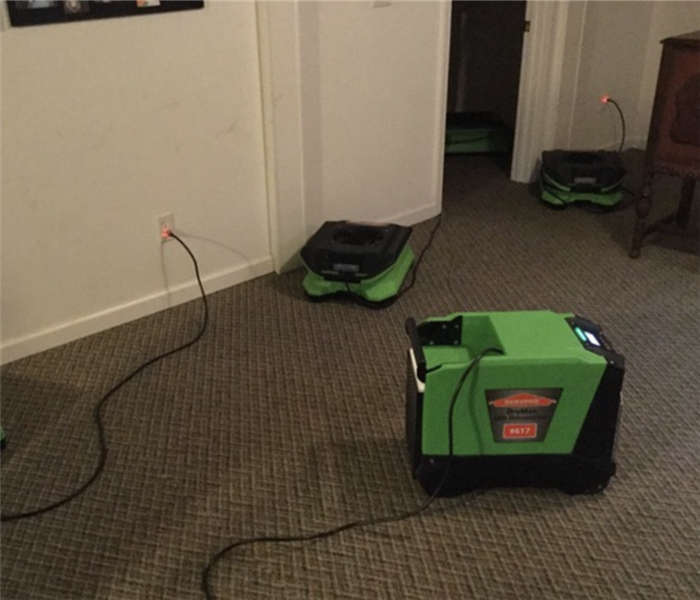How to Avoid Common Mistakes When Navigating Water Damage Insurance Claims
1/23/2024 (Permalink)
Water damage can strike unexpectedly, causing substantial harm to homes and possessions. Having insurance coverage is essential for mitigating the financial impact of such incidents. However, understanding the intricacies of water damage insurance can be challenging. In this blog, we explore common pitfalls to avoid when navigating water damage insurance coverage.
Know Your Policy
One of the most common pitfalls is a lack of understanding about the specifics of your insurance policy. Policies can vary widely, and it's crucial to know the extent of your coverage, including what is and isn't included. Regularly review your policy and seek clarification from your insurance provider if needed.
Gradual Damage Exclusions
Some policies may exclude coverage for damage that occurs gradually over time, such as a slow leak. It's essential to address such issues promptly and document them to demonstrate that you took reasonable steps to prevent further damage.
Flood Damage
Standard homeowners' insurance typically doesn't cover flood damage. Many homeowners discover this only after a flood occurs. To protect against this, consider purchasing a separate flood insurance policy through the National Flood Insurance Program (NFIP) or a private insurer.
Sewer Backup Coverage
Sewer backups can lead to extensive water damage, but not all policies automatically include coverage for this type of damage. Check your policy to see if sewer backup coverage is included, and consider adding it if not.
Mold Coverage Limitations
While some insurance policies cover mold remediation, there may be limitations on the amount of coverage provided. It's essential to understand these limits and, if necessary, purchase additional coverage for mold-related expenses.
Neglect and Maintenance Exclusions
Insurance policies often exclude coverage for damage resulting from neglect or lack of maintenance. Regularly inspect your home, address maintenance issues promptly, and keep records of your efforts to demonstrate diligence in preventing damage.
High Deductibles
Pay attention to your insurance deductible, as it can significantly impact your out-of-pocket expenses. Understand how much you're responsible for paying before insurance coverage kicks in and consider whether adjusting your deductible makes financial sense for your situation.
Documenting the Damage
Proper documentation is crucial when filing a water damage insurance claim. Take detailed photographs and videos of the damage, keep a record of communication with your insurer, and hold onto receipts for any expenses related to temporary repairs or accommodations.
Delayed Reporting
Timeliness is key when it comes to reporting water damage. Some policies may have strict reporting timelines, and delayed reporting can result in claim denials. Report water damage as soon as it occurs, providing all necessary documentation.
Excluded Causes of Water Damage
Insurance policies may exclude coverage for certain causes of water damage, such as damage resulting from a lack of waterproofing or the use of faulty materials during construction. Be aware of these exclusions and take preventive measures.
Navigating water damage insurance can be complex, but awareness of potential pitfalls is the first step to avoiding financial setbacks. Regularly review and understand the terms of your policy, address maintenance proactively, and promptly report any water damage incidents. By being proactive and well-informed, you empower yourself to navigate the intricacies of water damage insurance coverage and ensure a smoother claims process when the need arises.



 24/7 Emergency Service
24/7 Emergency Service
